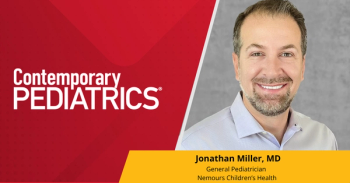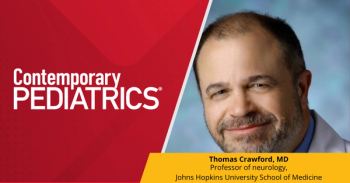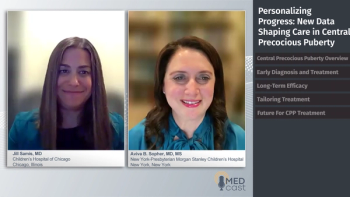
FDA prioritizes gepotidacin, an oral gonorrhea treatment for adolescents, enhancing access and adherence in sexual health care.

FDA prioritizes gepotidacin, an oral gonorrhea treatment for adolescents, enhancing access and adherence in sexual health care.

Explore the latest advancements in STI screening and management, focusing on pediatric care and the critical role of early detection in newborns.

C. Buddy Creech, MD, MPH, highlights advances in mRNA, monoclonals, adjuvants, and mucosal vaccines, stressing safety and parent communication.

Pediatricians can use structured visits, rating scales, and AAP guidelines to improve ADHD diagnosis, follow-up, and care coordination.

Pediatric flu deaths underscore risks for healthy children and highlight importance of annual vaccination and early recognition.

Adolescent STIs are rising. Diane Straub, MD, MPH, stressed confidential care, routine screening, and balancing parental involvement at AAP 2025.

Early allergen introduction, beginning in infancy and sustained over time, can safely reduce food allergy risk, said David Stukus, MD, at AAP 2025.

Multidisciplinary care is key in evaluating and managing menstrual disorders in adolescents.

New contraceptive options and counseling strategies aim to improve adolescent access and address patient-specific needs presentedat AAP 2025.

Thomas Crawford, MD, discusses recent data for apitegromab for SMA, as well as overall developments in the field.

Thomas Crawford, MD, said SAPPHIRE trial data show apitegromab provides clinically meaningful strength gains for children with SMA by targeting muscle in addition to motor neurons.

In this video interview, John Browning, MD, comments on the recent pediatric indication approved for ruxolitinib to treat atopic dermatitis.

Thao-Ly Phan, MD, MPH, highlights how lessons from pandemic-related weight gain can guide pediatricians in addressing stress, prevention, and whole-child health.

Richard A. Bermudes, MD, underscored the need for pediatricians to integrate ongoing conversations into well visits in this video interview.

Children diagnosed with COVID-19 gained more weight than COVID-negative peers, especially after diagnosis, during the pandemic.

Study author David Brousseau, MD, MS, explains the benefit of a child being able to go home after a sickle cell disease-associated ED visit.

Panelists discuss how central precocious puberty involves early activation of the hypothalamic-pituitary-gonadal axis before age 8 in girls and age 9 in boys. This requires individualized treatment decisions based on factors such as growth velocity, bone age advancement, and psychosocial impact, with GnRH agonist therapies available in multiple formulations (injections and implants) that effectively suppress puberty while preserving final height potential and have reassuring long-term safety profiles for bone health and fertility outcomes.

Brousseau stressed that timeliness is not just guideline adherence, but it meaningfully changed whether children can go home from the ED, according to study results.

Watch our FDA pipeline news recap for the month for August 2025, as well as a preview of PDUFA dates listed for September.

Florida is not aiming to ban vaccinations, but its surgeon general stated "Who am I to tell you what your child should put in [their] body? I don’t have that right."

“It’s not just about screen time—it’s about context,” says Richard A. Bermudes, MD, on guiding conversations in pediatric well care visits.

Michael Haller, MD, tell providers they shouldn't be surprised if more children with T1D use inhaled insulin.

Richard J. Wong, DO; and Tyra Bryant-Stephens, MD, outline strategies for controlling asthma as kids head back to school.

Manufacturer MannKind has submitted a supplemental Biologics Application to the FDA for its inhaled insulin Afrezza.

As families prepare for a new school year, pediatricians are essential in helping parents navigate immunization schedules and school requirements and ensuring vaccine confidence.

Elizabeth Reichert, PhD, shares practical tips for pediatricians to help families monitor teen media use and recognize early signs of anxiety.

Richard Auchus, MD, PhD, highlights data showing that crinecerfont use in children with CAH can improve metabolic outcomes.

An expert discusses how the stage and diverse presentations of atopic dermatitis, especially in underserved and darker-skinned patients, influence treatment decisions, highlighting the promise of new nonsteroidal therapies and the importance of personalized, patient-centered care to improve quality of life.

An expert discusses the vital role of patient education, coordinated care, and timely dermatology referrals in managing atopic dermatitis, emphasizing holistic support and the use of systemic therapies for severe or treatment-resistant cases to improve long-term outcomes.

An expert discusses the importance of careful topical steroid use to minimize adverse effects in atopic dermatitis, while highlighting newer, more potent nonsteroidal treatments such as PDE4 and JAK inhibitors as promising safer alternatives for effective long-term disease control.